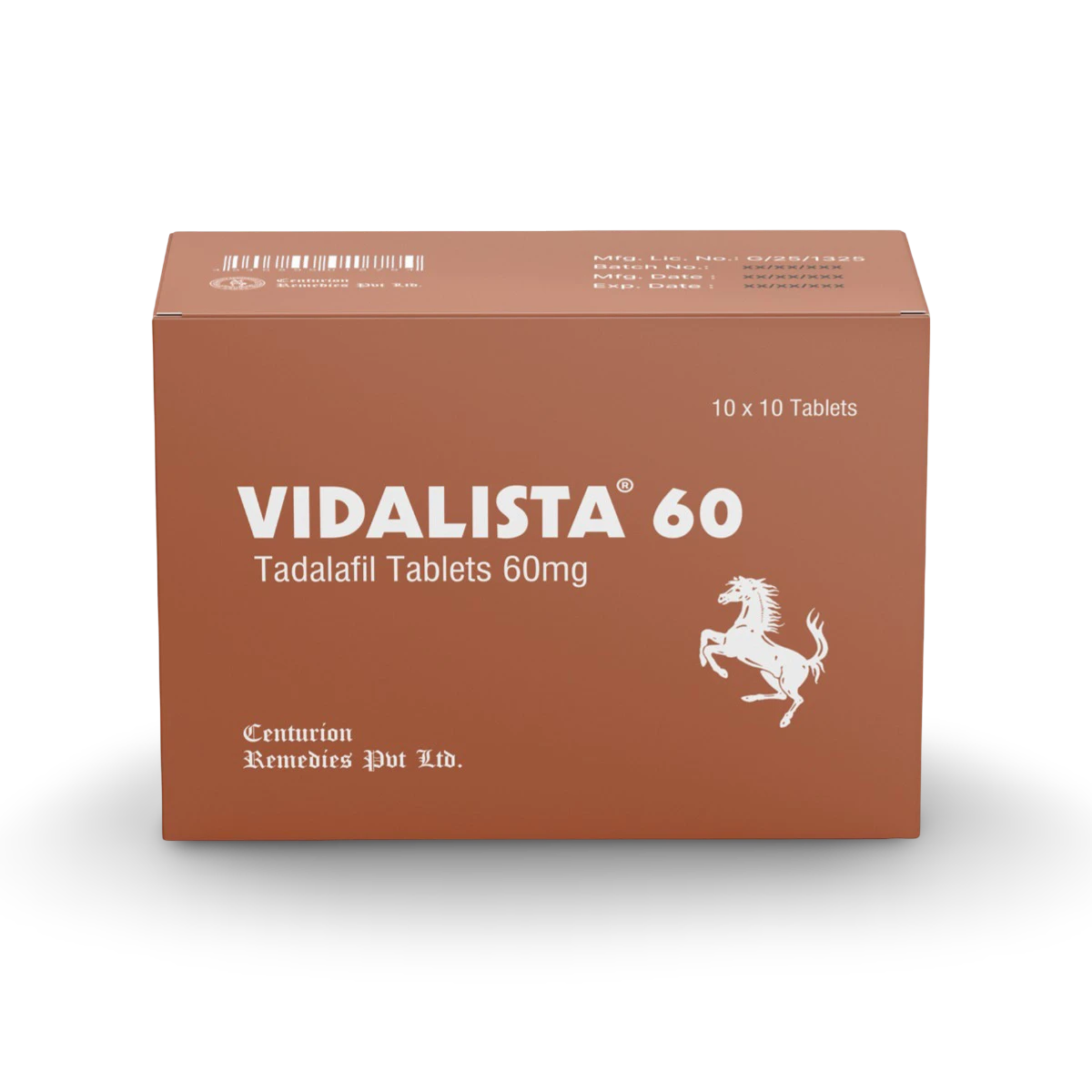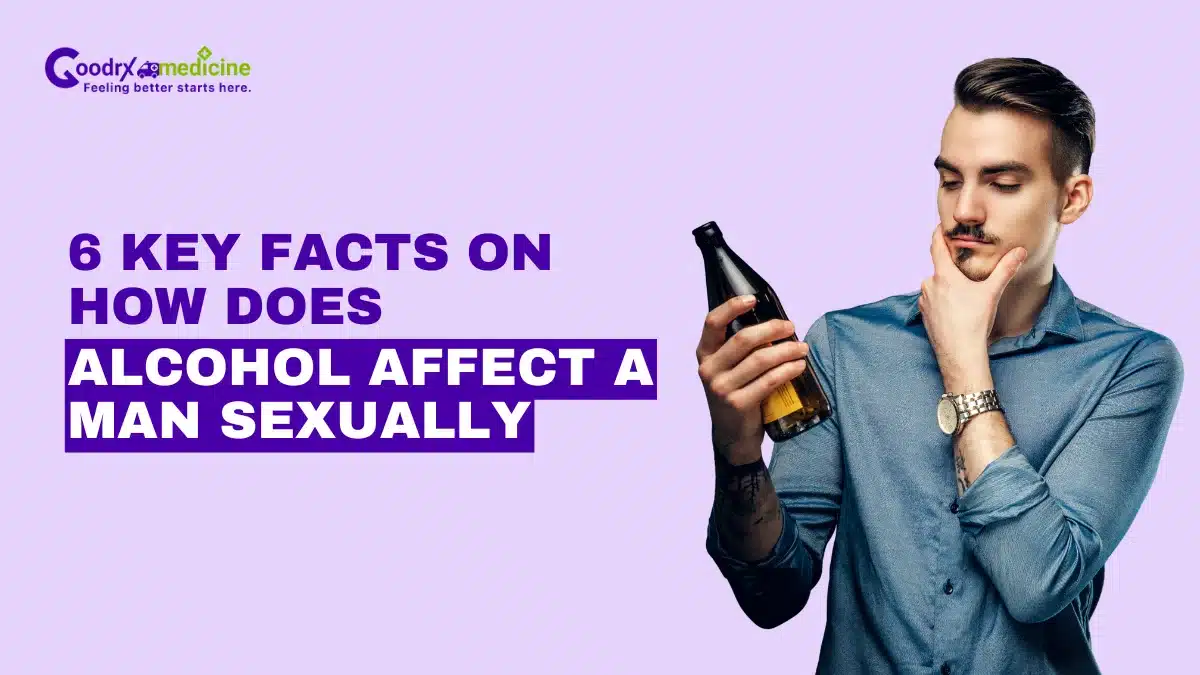Alcohol consumption is a common part of social life for many men around the world. It is often used to celebrate, relax, or ease social interactions. While moderate alcohol use may not raise immediate concerns, its impact on a man’s sexual health is often underestimated.
Scientific studies and clinical observations show that alcohol can interfere with both short-term and long-term sexual function. From reduced desire to problems with erection and fertility, alcohol’s effects are real, complex, and worth understanding.
This article discusses in detail: how does alcohol affect a man sexually. It also talks about its influence on libido, erection quality, Testosterone levels, sperm health, and mental health.
Whether you drink occasionally or regularly, knowing the effects of alcohol on men’s health can help you make more informed decisions.
1. Alcohol and sexual desire (libido)
Sexual desire in men is largely driven by the hormone Testosterone. This hormone helps in maintaining libido, energy levels, and overall sexual interest. Alcohol consumption, especially in high amounts or over long periods, can lead to Low Testosterone levels in the body.
When Testosterone drops, a man may feel less interested in sex. He may also experience fatigue, mood swings, and even depression, which can reduce sexual desire.
Some men may not notice this effect after one or two drinks, but long-term or heavy alcohol use can significantly suppress sexual drive.
Save up to 90% on your medicine bills

Cenforce 100 mg

Cenforce 200 mg

Kamagra Oral Jelly Rx 100 mg

Vidalista 60 mg
2. Alcohol and erection problems
One of the most direct ways alcohol affects male sexual performance is by interfering with the ability to achieve or maintain an erection. Erections are the result of proper blood flow to the penis, controlled by a mix of hormones, nerves, and blood vessels. Alcohol can disturb this process in several ways:
- Nerve damage: Alcohol is a depressant. It slows down the central nervous system, including the nerves that signal arousal and erections.
- Reduced blood flow: Alcohol can expand blood vessels temporarily, but it can also lead to long-term circulation problems. Poor blood flow can make it hard to get or keep an erection.
- Hormonal changes: Chronic alcohol use can reduce Testosterone and increase estrogen levels, both of which negatively affect sexual performance.
Men who drink heavily may find that they struggle with Erectile Dysfunction (ED), even if they are sexually aroused. This is not just a psychological problem; it’s a physical consequence of how alcohol affects the body.
3. The alcohol confidence trap
Many men believe that alcohol makes them better in bed by helping them feel more confident, less anxious, and more socially open. This is partly true in the short term. Even a little alcohol can reduce inhibition and make a man feel more relaxed during sexual encounters.
However, this confidence boost comes at a price. Alcohol impairs judgment and coordination, slows down reaction time, and decreases physical sensitivity. As a result, even though a man may feel more confident, his actual performance may suffer. He may have trouble staying aroused, reaching orgasm, or satisfying his partner.
This false sense of sexual enhancement is one of the reasons alcohol is often linked with risky behavior, such as unprotected sex or several partners, which can increase the chances of Sexually Transmitted Infections (STIs).
4. Alcohol and ejaculation
Another common sexual problem linked with alcohol use is difficulty with ejaculation. Depending on how much a man drinks, alcohol can either cause delayed ejaculation or Premature Ejaculation (PE):
- Delayed ejaculation occurs when a man finds it difficult or even impossible to reach orgasm, even after long periods of stimulation. This can be frustrating for both partners and is often linked with heavy drinking.
- PE, though less common with alcohol, may happen in situations where the man feels nervous or is under psychological stress.
In both cases, alcohol interferes with the body’s natural responses, making it harder to control when and how ejaculation occurs.
5. Alcohol and fertility
Long-term alcohol use can also reduce a man’s ability to father children. This happens for several reasons:
- Lower sperm count: Studies show that alcohol can reduce the production of sperm.
- Poor sperm quality: Alcohol can damage the shape, movement, and DNA of sperm, making them less likely to fertilize an egg.
- Hormonal imbalance: Alcohol impacts the balance of hormones needed for sperm production.
In severe cases, chronic alcoholism may even cause testicular atrophy, which is the shrinking of the testicles, and complete infertility. These effects are usually more pronounced in men who drink heavily over long periods, but even moderate drinking can have an impact on reproductive health.
6. Psychological effects of alcohol on sexual health
Sexual health is not just physical; it is deeply connected to mental and emotional health. Alcohol can affect a man’s sexual confidence, self-image, and emotional connection with his partner. Some of the psychological effects include:
- Anxiety and Depression: Alcohol can worsen mental health issues that interfere with sexual desire and performance.
- Relationship strain: If a man frequently drinks, it may lead to fights, mistrust, and emotional distance in relationships, all of which can reduce sexual intimacy.
- Performance Anxiety: If alcohol causes a man to fail sexually once, he may start fearing failure in the future. This can make a cycle of anxiety and poor performance.
Over time, these issues can lead to avoidance of sexual activity altogether, further damaging a man’s self-esteem and emotional health.
The role of binge drinking
Binge drinking, defined as drinking large amounts of alcohol in a short time, has especially harmful effects on male sexual health. Even if a man drinks only once or twice a week, but does so in excess, the impact on his sexual performance can be immediate and noticeable.
Binge drinking can:
- Cause temporary Erectile Dysfunction
- Increase the risk of risky sexual decisions
- Lead to blackouts or memory loss, affecting emotional connections
Repeated episodes of binge drinking can gradually lead to more lasting damage, including chronic sexual dysfunction.
Is moderate drinking safe?
Not all alcohol use leads to sexual problems. Moderate drinking, usually defined as up to two drinks per day for men, may not have severe or long-term effects on sexual health in most people. Some studies even suggest that light alcohol use might slightly improve circulation or help with relaxation during sex.
However, what is considered “moderate” can vary by person. Age, metabolism, weight, and overall health all play a role. If a man notices changes in his sexual function, even with moderate drinking, it may be worth cutting back or discussing with a healthcare provider.
Can the damage be reversed?
In many cases, the sexual side effects of alcohol are reversible. If a man reduces or stops alcohol use, he may notice improvements in:
- Libido
- Erection quality
- Ejaculation control
- Sperm health
- Mood and confidence
However, recovery depends on how long and how heavily a man has been drinking. The sooner the change is made, the better the chances of regaining full sexual function. In cases where damage is severe or long-lasting, medical treatments such as counseling, hormone therapy, or medication may be needed.
Conclusion
Understanding how alcohol affects sexual function in men is essential for making informed choices about both health and intimacy. So, how does alcohol affect a man sexually? From lowering Testosterone and sexual desire to causing ED, ejaculation problems, and even infertility, alcohol’s impact is significant and wide-ranging.
It can also affect emotional and mental well-being, leading to strained relationships and reduced self-confidence. While moderate drinking may not cause lasting harm, heavy or frequent alcohol use puts sexual health at serious risk.
The good news is that many of these effects can be reversed or managed through lifestyle changes, reduced alcohol intake, and timely medical support. If you’re experiencing changes in your sexual health and drink regularly, it may be time to reflect on your habits.

Frequently Asked Questions
Does alcohol affect sexual attraction or partner bonding?
Yes, alcohol can impair emotional perception and judgment, which may reduce genuine sexual attraction or connection with a partner. It might cause a man to feel detached or less emotionally engaged, weakening the psychological intimacy that’s important for a healthy sexual relationship.
Does alcohol change sexual orientation or preferences?
No, alcohol doesn’t change sexual orientation, but it can reduce inhibitions, making you more likely to explore or express hidden desires. This might lead to sexual behavior that seems out of character, but it’s usually influenced by impaired judgment rather than a genuine shift in orientation.
Can alcohol use increase the risk of cheating or infidelity?
Alcohol impairs judgment and increases impulsive behavior, which may lead to decisions one wouldn’t make when sober, including infidelity. While alcohol doesn’t cause cheating, it can create situations where self-control and loyalty are compromised, especially in emotionally strained relationships.
Can alcohol make a man more aggressive during sex?
Yes, alcohol lowers inhibitions and impairs impulse control, which can sometimes lead to aggressive or inappropriate sexual behavior. It affects brain areas linked to judgment and emotion, increasing the risk of unwanted advances, conflict during intimacy, or even violence in extreme cases.
When referencing outside resources, GoodrxMedicine always provides full citations. To learn more about the measures we use to maintain the quality of our content, please review our Content Information Policy.











